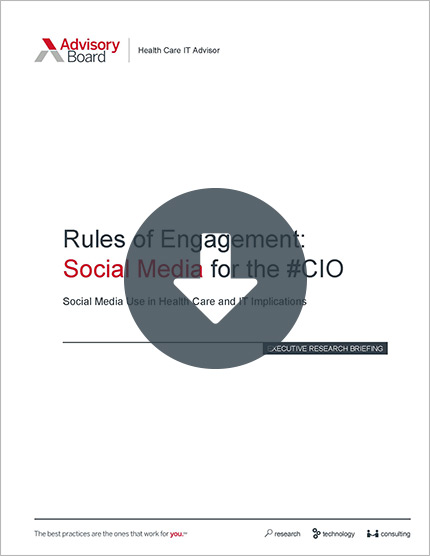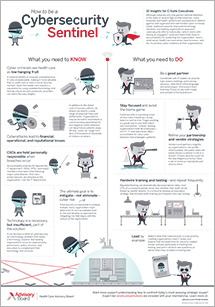Auto logout in seconds.
Continue LogoutA substantial amount of health news articles shared on social media in 2018 contained information that was misleading or outright false, according to a review conducted by Health Feedback and the Credibility Coalition.
Cheat sheet series: Evidence-based medicine 101
Study details
For the study, scientists at Health Feedback examined the 100 health articles with the most social media engagement in 2018. Each article was scored on a scale of +2 (very high credibility) to -2 (very low credibility). Articles deemed neutral were given a zero.
The articles' scores took into account "the scientific accuracy of facts contained within the text, and the scientific quality of reasoning used," rather than any opinions expressed in the article.
Majority of the 10 most-shared stories included misleading or false information, study finds
When looking at the top 10 stories with the highest social media engagement in 2018, the scientists found that seven were either misleading or contained false information, while just three were considered "highly credible."
The scientists estimated that, of the articles on the top 10 list, the ones with very low credibility scores received 2.1 million shares, while the neutral articles received 2.6 million shares, and the most credible ones received 1.7 million shares.
The top 10 most-shared articles that were reviewed by clinicians and scientists for accuracy were:
- Federal study finds marijuana 100X less toxic than alcohol, safer than tobacco, published by Your Health Guide (-1.3: Not credible and potentially harmful). According to reviewer Andrew J. Saxon, a professor in the department of psychiatry and behavioral sciences at the University of Washington, "The basic finding that cannabis is less acutely toxic than other substances that humans misuse is accurate and widely accepted, but acute toxicity is only one way to characterize the harms of a substance." As such, Saxon wrote, the article "does not present a balanced view of ... known harms which have been well-documented";
- Video shows difference between healthy lungs and those of a smoker, published by Daily Mail (0: Neutral). Christopher Labos, an associate at the McGill Office for Science and Society, said the article "highlight[s] the dangers of smoking, which are real and significant. But the demonstration is not that scientific," as it focuses on a video showing lungs outside the body;
- Benefits of walking: 8 ways walking regularly improves your health, published by Providr (-0.5: Not credible). Sharon Dunwoody, a professor in journalism and mass communication at the University of Wisconsin-Madison, wrote, "While all these benefits of walking may be real, this article makes no effort to offer the evidence that lies beneath them";
- Everything you know about obesity is wrong, published by HuffPost (0: Neutral). Health Feedback science editor Flora Teoh wrote that the article "describes the personal experiences of people living with obesity," and that most of its citations are to "psychological and sociological studies (like surveys)"—and "therefore much of the article falls outside the scope of biology fact-checking";
- World Health Organization officially declares bacon is as harmful as cigarettes, published by Truth Reporter (-1.3: Not credible and potentially harmful). Jana Anderson, a research fellow at the University of Glasgow, wrote, "The classification of processed meat as 'Group 1'—arcinogenic to humans—means that the evidence is as strong as for other risk factors included in the Group 1 category, including tobacco. It does not mean that the risk is the same";
- Have cold or flu symptoms? Here's how to tell the difference, published by TIME (+1.5: Highly credible). Teoh praised the article for its "comments from highly credible sources, such as family physicians and information from the CDC";
- Stem cell treatment could be a game-changer for MS patients, published by TIME (+0.4: Credible). Dunwoody noted that "[w]hile the study seems legitimate, the reporter's characterization of it as potentially a 'breakthrough' is not," as the study represents only the first step on "a long clinical road that will explore the possible benefits" of the treatment;
- How cycling in old age can keep your immune system young, published by TIME (+0.5). Teoh notes that the article is generally "balanced" and focuses on peer-reviewed research, but writes that it mischaracterizes researchers' findings regarding the levels of T-cells in study participants;
- Is everything you think you know about depression wrong?, published by The Guardian (-1.5: Not credible and potentially harmful). Raymond Lam, a professor in the University of British Columbia's department of psychiatry, noted that the Guardian's article was "an excerpt from a provocative book written by a lay person who is clearly anti-psychiatry," criticizing it for its "wild exaggerations, oversimplifications, and inaccuracies";
- Cause of polycystic ovary syndrome discovered at last, published by NewScientist (0.3: Neutral). Teoh writes that the article links to the original research article, "which it describes quite accurately," but argues that it failed to "balanc[e] things out" by discussing potential downsides of a treatment for the syndrome.
Overall, the scientists found that just under half of the top 100 articles had a high credibility rating, and these articles received a total of 11 million shares—while articles with poor credibility ratings received about 8.5 million shares.
The scientists also found that 96% of the shares received by the top 100 articles came from Facebook, while 2% came from Reddit and 1% came from Twitter.
Why does inaccurate health news pick up so much steam?
The scientists attributed the rise of viral fake news stories to sensationalized headlines that grab readers' attention. The scientists said more balanced and credible stories do not always lend themselves toward grabby headlines. "This means that the general public is more likely to come into contact with misleading information than accurate [articles] on social media," they said.
This isn't necessarily surprising, Rina Raphael reports for Fast Company, as false news stories have been shown to spread faster and more broadly than accurate ones, according to a report published in Science.
Susan Krenn, executive director of the Johns Hopkins Center for Communication Programs, told Fast Company that reining in false news is a difficult task. She said, "It's a challenge, because when you see something posted on your social media site that comes from one of your peers, colleagues, or family members, you are more likely to believe it," she said (Raphael, Fast Company, 2/4; HealthFeedback methodology, accessed 2/6).
Cheat sheet series: Evidence-based medicine 101
Been awhile since your last statistics class? It can be difficult to judge the quality of studies, the significance of data, or the importance of new findings when you don't know the basics.
Download our cheat sheets to get a quick, one-page refresher on some of the foundational components of evidence-based medicine.
Don't miss out on the latest Advisory Board insights
Create your free account to access 1 resource, including the latest research and webinars.
Want access without creating an account?
You have 1 free members-only resource remaining this month.
1 free members-only resources remaining
1 free members-only resources remaining
You've reached your limit of free insights
Become a member to access all of Advisory Board's resources, events, and experts
Never miss out on the latest innovative health care content tailored to you.
Benefits include:
You've reached your limit of free insights
Become a member to access all of Advisory Board's resources, events, and experts
Never miss out on the latest innovative health care content tailored to you.
Benefits include:
This content is available through your Curated Research partnership with Advisory Board. Click on ‘view this resource’ to read the full piece
Email ask@advisory.com to learn more
Click on ‘Become a Member’ to learn about the benefits of a Full-Access partnership with Advisory Board
Never miss out on the latest innovative health care content tailored to you.
Benefits Include:
This is for members only. Learn more.
Click on ‘Become a Member’ to learn about the benefits of a Full-Access partnership with Advisory Board
Never miss out on the latest innovative health care content tailored to you.


